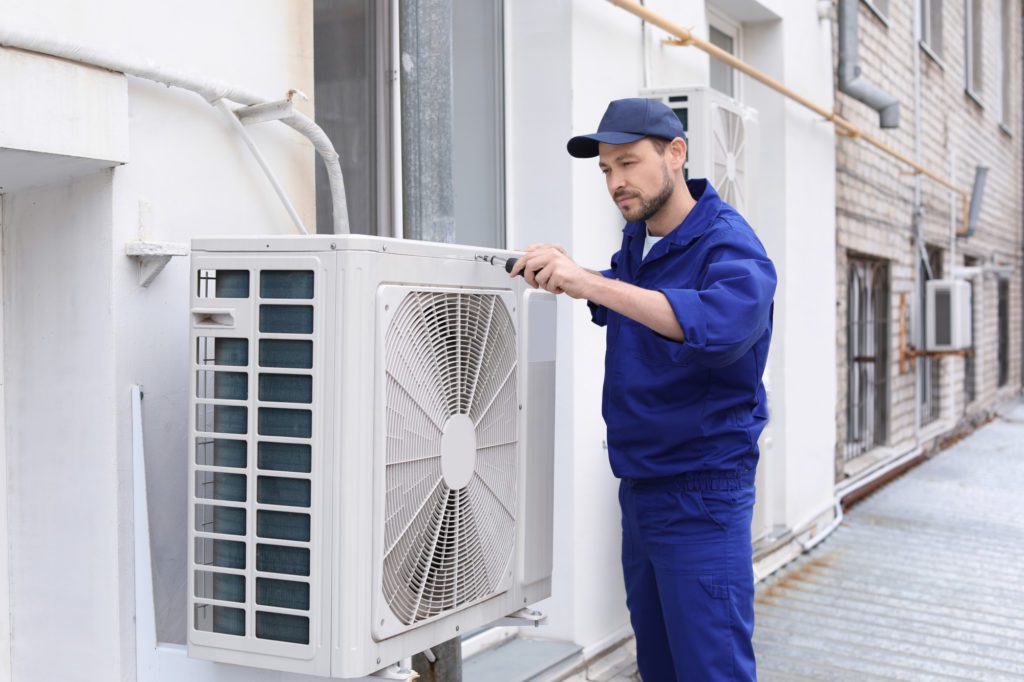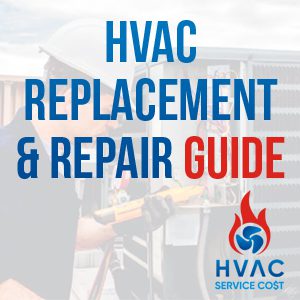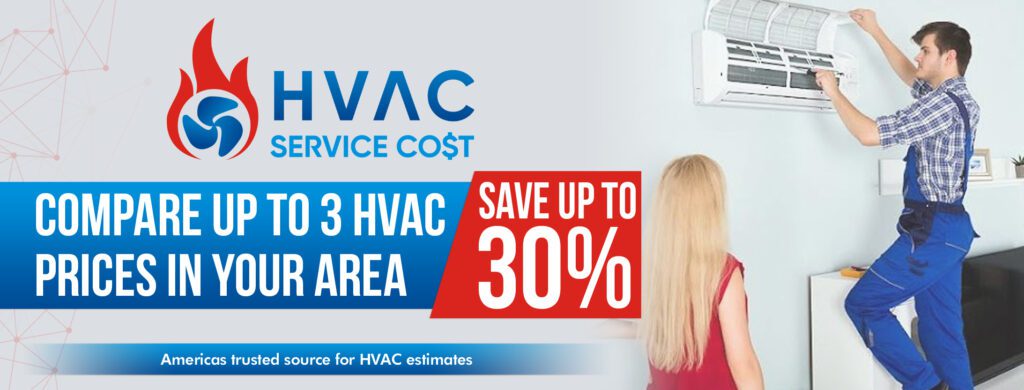
HVAC Repairs 101: How to Identify Issues Based on Sound Alone
Ah, the comfort of a well-maintained HVAC system – it keeps our homes warm in the chilly winter months and refreshingly cool during the height of summer. But what happens when, out of the blue, your trusty system starts making unusual sounds? Sudden noises can be disconcerting and may signal a need for repair. Before you start fretting, let’s delve into the world of HVAC sounds to help you identify potential issues based solely on what you hear.
COMPARE QUOTES NOWThe Symphony of Sounds Your HVAC System Can Make
An HVAC system, like any other machine, has its natural sounds. However, there are certain noises that should immediately grab your attention. Here’s a breakdown:
- Buzzing: This could be due to electrical issues, loose parts, debris in either the indoor or outdoor units, or even refrigerant leaks. A continuous buzz can be particularly concerning and should be addressed quickly.
- Banging or Clanging: Often, this indicates that there’s a loose or broken part, perhaps a connecting rod, piston, or belt. It might also mean your compressor needs replacement.
- Whistling or Hissing: This usually points to a potential leak. If it’s coming from the air vents, it could be due to a gap in the ductwork. However, if the hissing sound is near your compressor, it’s a sign of a more serious refrigerant leak.
- Rattling: Over time, parts of your HVAC system can become loose or out of place. Rattling can be a sign of this natural wear and tear. But it could also mean debris, like leaves or twigs, have found their way inside the unit.
- Clicking: While clicking sounds at the start and end of a cycle are standard, continuous clicking could be symptomatic of a failing thermostat or a defective control.

So, You’ve Identified the Sound. Now What?
Once you’ve determined the type of sound, the next step is to take action. While it might be tempting to grab your toolkit and go DIY, many HVAC issues require a professional touch. Remember, timely intervention can prevent a small issue from morphing into a much larger, costlier problem.
COMPARE QUOTES NOWThe Importance of Professional Quotes
If you believe your HVAC system is signaling distress, it’s essential to get professional opinions. Here’s why:
- Accuracy: Professionals have been trained to diagnose issues swiftly and accurately.
- Cost-Efficiency: By pinpointing the exact problem, professionals can often save you money in the long run, preventing you from spending on unnecessary fixes.
- Peace of Mind: There’s a certain comfort in knowing that your HVAC system is in the hands of someone experienced.
Your HVAC system is a vital part of your home, and its sounds can be crucial indicators of its health. Being attuned to these sounds can be the difference between a minor repair and a major system overhaul.
If any of these noises sound familiar, or if you’re just looking to have your system checked out for peace of mind, don’t hesitate. Get quotes for HVAC repairs from professionals. They’ll ensure your system gets back to its silent, efficient self in no time.

The Most Common HVAC Repairs to Watch Out For
Every machine undergoes wear and tear over time, and HVAC systems are no exception. With such complex mechanisms and constant demands, it’s natural for parts to degrade or malfunction. Below are some of the most frequent HVAC repairs and their root causes.
- Air Filters: One of the simplest but often overlooked components, the air filter can get clogged with dirt, dust, and debris. A dirty filter restricts airflow, forcing the system to work harder and potentially causing overheating.
- Refrigerant Leaks: If your space isn’t cooling as effectively, a refrigerant leak might be to blame. Refrigerants are crucial for the cooling process. Leaks can decrease efficiency and are harmful to the environment.
- Faulty Thermostats: The brain of your HVAC system, a malfunctioning thermostat can cause erratic temperatures, or the system might not turn on at all.
- Electrical Issues: Over time, wires can corrode, connections can loosen, and components can fail. Electrical problems in the HVAC system can range from simple blown fuses to more complex circuitry issues.
- Dysfunctional Fans: The fans help with airflow for both heating and cooling processes. Broken belts, motors, or faulty bearings can hinder their performance.
- Malfunctioning Compressors: As the heart of the AC system, the compressor pumps refrigerant to keep your space cool. When it malfunctions, the entire cooling process is affected.
- Uncleaned Ducts: Dust, dirt, and allergens can accumulate in the ducts, reducing air quality and HVAC efficiency. Regular cleaning is essential to prevent issues.
- Broken Blower Motors: Responsible for regulating the amount of air that goes through the HVAC, a malfunctioning blower motor can impact the system’s effectiveness.
Root Causes Behind These Repairs
Several reasons could cause the above issues. Here are some factors:
- Age of the System: As systems age, parts wear out, and performance diminishes, leading to potential problems.
- Lack of Maintenance: Regular checks and servicing can catch issues before they become major problems. Neglect can lead to a host of complications.
- Dirty or Blocked Components: Dust, dirt, and debris can compromise system efficiency. Clean systems tend to have fewer issues.
- External Factors: Extreme weather conditions, power surges, or even local fauna can adversely affect the system.
By being vigilant and recognizing potential issues early, homeowners can prevent significant damage and costs. Regular maintenance is a proactive step every homeowner should prioritize to ensure the longevity and efficiency of their HVAC system.

Can HVAC Repairs Be Prevented?
In many cases, the answer is a resounding yes. While no system is immune to wear and tear, especially as it ages, many HVAC repairs can be forestalled or altogether prevented with consistent and thorough maintenance. Below are some effective strategies and tips to keep your HVAC system running smoothly, minimizing unexpected breakdowns and the associated repair costs:
COMPARE QUOTES NOWRegular Maintenance Schedule
- Seasonal Check-Ups: It’s wise to have a professional check your HVAC system at the beginning of the cooling and heating seasons. This ensures that potential issues are identified and rectified before they escalate.
- Filter Changes: One of the simplest yet most effective preventive measures is changing or cleaning the air filters regularly, ideally every 1-3 months. This can drastically improve air quality and system efficiency.
Maintain Outdoor Units
- Clear Debris: Ensure the area around outdoor units is free from debris, plants, and other obstructions. This aids in proper airflow and prevents potential damage.
- Clean the Units: Periodically cleaning the exterior of the unit helps prevent dust and dirt accumulation which can hamper efficiency.
Regular Duct Cleaning
- Enhance Air Quality: Clean ducts mean fewer allergens and pollutants circulating in your home.
- Prevent Blockages: A build-up of dust and debris can restrict airflow, causing the system to work harder.
Check Thermostat Settings
- Calibration: Ensure that the thermostat is calibrated correctly to prevent unnecessary heating or cooling.
- Upgrade: Consider upgrading to a programmable or smart thermostat which can optimize heating and cooling schedules for efficiency.
Regularly Inspect Electrical Connections
- Ensure Safety: Regularly inspecting and tightening electrical connections can prevent potential hazards.
- Maintain Efficiency: Faulty electrical connections can cause the system to work inefficiently, increasing energy consumption.

Lubricate Moving Parts
- Prevent Wear and Tear: Proper lubrication reduces friction in motors and other moving parts, prolonging their life.
- Optimize Efficiency: Less friction means the system doesn’t have to work as hard, saving on energy costs.
Check Refrigerant Levels
- Optimal Cooling: Ensure that the refrigerant level is adequate. Too much or too little can affect system efficiency and cooling performance.
Inspect Condensate Drain
- Prevent Water Damage: Regularly checking the condensate drain for clogs can help avoid potential water damage and maintain proper humidity levels.
While some HVAC repairs are inevitable, especially as the system ages, consistent maintenance can drastically reduce the frequency and severity of these issues. It’s a small investment of time and effort that can save homeowners considerable stress, discomfort, and money in the long run. If you’re uncertain about your system’s health or the last time it was checked, consider getting a professional quote for a thorough inspection.
COMPARE QUOTES NOWHow Much Does HVAC Repair Cost?
Understanding the potential costs associated with HVAC repairs can help homeowners better prepare for unforeseen issues. While the cost can vary based on the severity of the problem, the age of your system, and the region in which you live, it’s good to have a general idea. Here’s a breakdown of average costs for common HVAC repairs:
Diagnostic Fee
- Cost: Typically between $50 to $100.
- Purpose: Even before any repair work begins, many professionals will charge a diagnostic fee to identify the exact issue with your system.
Refrigerant Leak Detection & Repair
- Cost: $200 to $1,500.
- Details: The cost can vary based on the location of the leak and the cost of the refrigerant. Remember, constantly refilling your system without fixing the leak is both expensive and environmentally harmful.
Thermostat Replacement
- Cost: $100 to $500.
- Details: The price range here reflects the broad array of thermostats available, from basic models to smart thermostats that can be controlled via mobile apps.

Blower Motor Repair
- Cost: $150 to $700.
- Details: Blower motors circulate air throughout your home. If they fail, it can lead to significant discomfort. The price varies based on the type of motor and its accessibility.
Capacitor or Contactor Replacement
- Cost: $90 to $400.
- Details: These components help start the system and keep it running. If they fail, your HVAC system might not turn on at all.
Circuit Board Replacement
- Cost: $120 to $600.
- Details: The circuit board controls many of the functions of your HVAC. If it malfunctions, various parts of the system might not work properly.
Evaporator Coil Replacement
- Cost: $650 to $1,200.
- Details: The evaporator coil is crucial for cooling your home. If it gets damaged, your system may not cool effectively.
Compressor Repair
- Cost: $1,350 to $2,300.
- Details: As the heart of the air conditioning system, a compressor failure can be one of the more costly repairs.
It’s crucial to note that these are average costs and actual prices can vary based on various factors, including labor rates in your area and the specific nature of the problem. To get a precise estimate, always seek quotes from multiple professionals. Additionally, to potentially mitigate repair costs, homeowners might consider HVAC service contracts or warranties, which often cover certain repairs and regular maintenance visits.

When to Call a Professional
As with many home systems, some signs of wear and tear or minor issues can be addressed by a knowledgeable homeowner. However, due to the complexity of HVAC systems, it’s often best to consult a professional for repairs, especially if you’re unsure about the problem or how to fix it. Here’s when you should consider calling an expert:
- Frequent Cycling: If your HVAC system is frequently turning on and off, it might be struggling to maintain the desired temperature. This could be due to a variety of reasons including a malfunctioning thermostat, an incorrect HVAC size for your home, or internal problems.
- Unusual Noises: As the main theme of this article suggests, odd sounds can be an indicator of a variety of issues. If you’ve identified a noise but are unsure about its source or solution, it’s a sign to get a professional opinion.
- Water Leaks: Any form of water pooling around your HVAC unit is a concern. It could be due to a blocked drain line, a broken pump, or even a refrigerant leak. Water can cause additional damage to your home, so it’s best to address this immediately.
- Poor Air Quality: If you notice more dust around your home, or the onset of allergy symptoms when indoors, your HVAC might not be filtering air properly. A technician can help determine if the filters are to blame or if there’s a bigger underlying issue.
- Inconsistent Temperatures: If some rooms in your home are too cold while others are too hot, there might be a problem with your HVAC’s distribution system. It could be due to blocked vents, broken fans, or issues with the ductwork.
Maintenance is Key
A final point to stress is the importance of regular HVAC maintenance. A semi-annual or annual check by a professional can catch issues before they become expensive repairs. This proactive approach can extend the life of your system, improve its efficiency, and ensure that you’re getting the best performance possible.
Understanding your HVAC system, being alert to changes or unusual sounds, and keeping up with maintenance are crucial steps in preventing major repair costs. While some repairs are inevitable over the lifespan of an HVAC system, being informed and proactive can make the process less daunting and more manageable. Always remember, when in doubt, it’s best to consult with a professional who can provide guidance tailored to your specific situation.
COMPARE QUOTES NOW


Leave a Reply